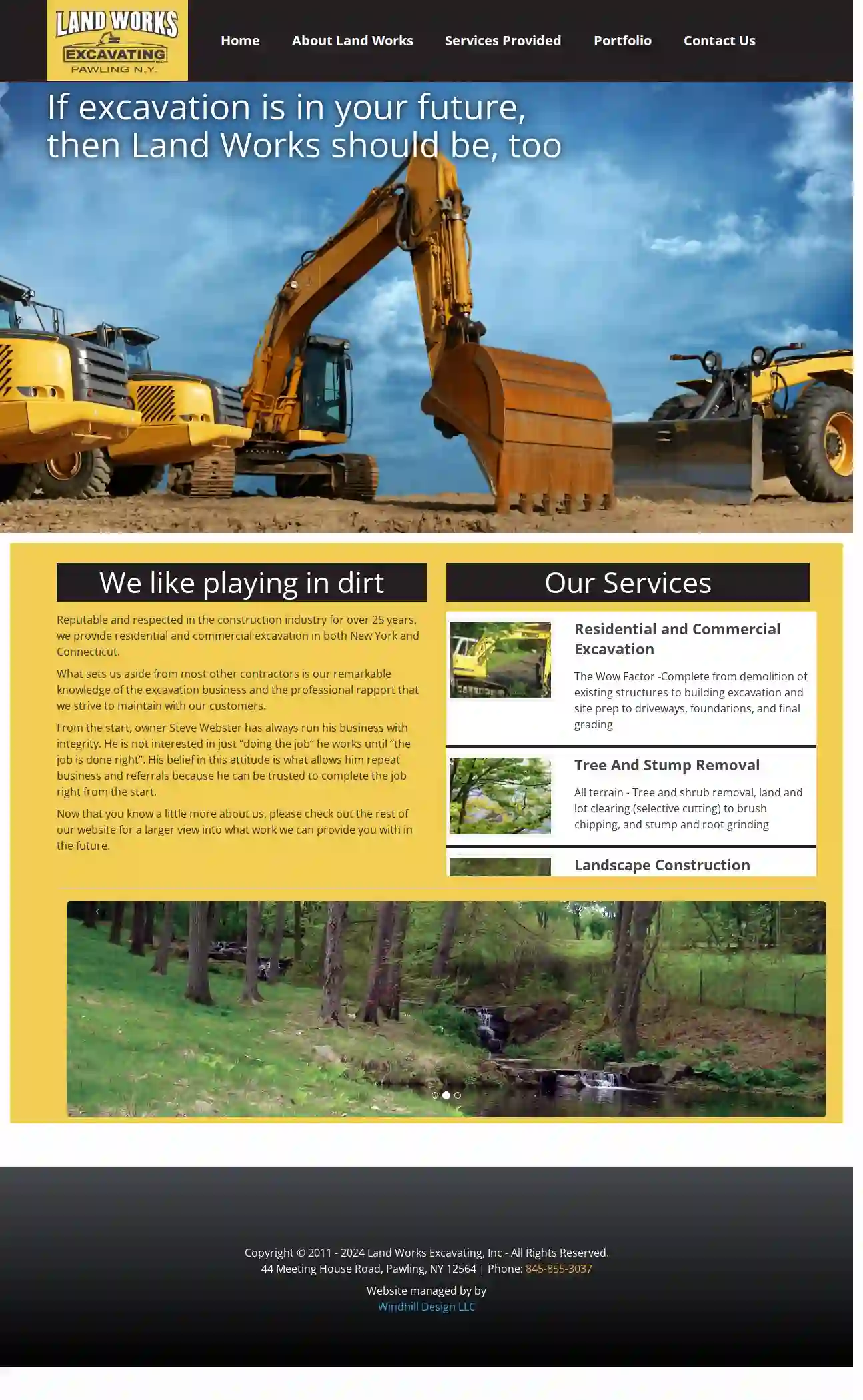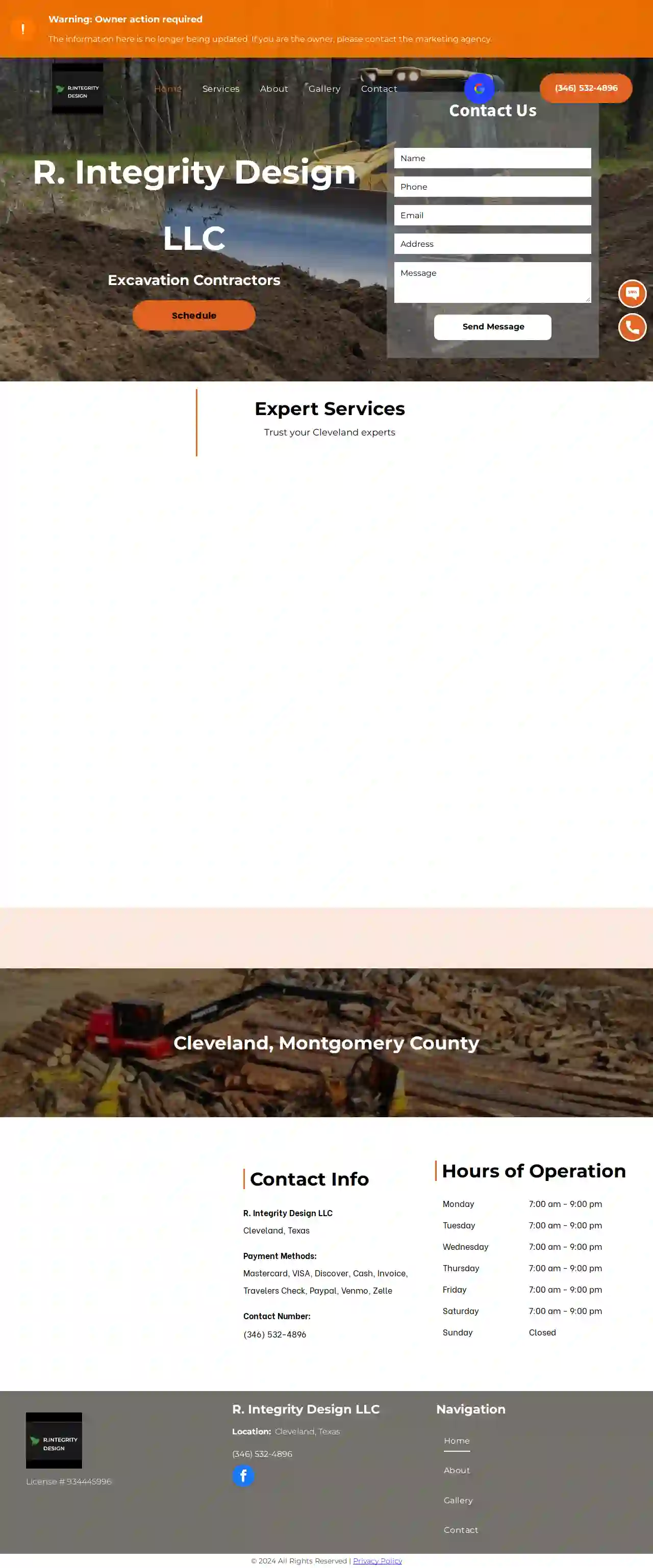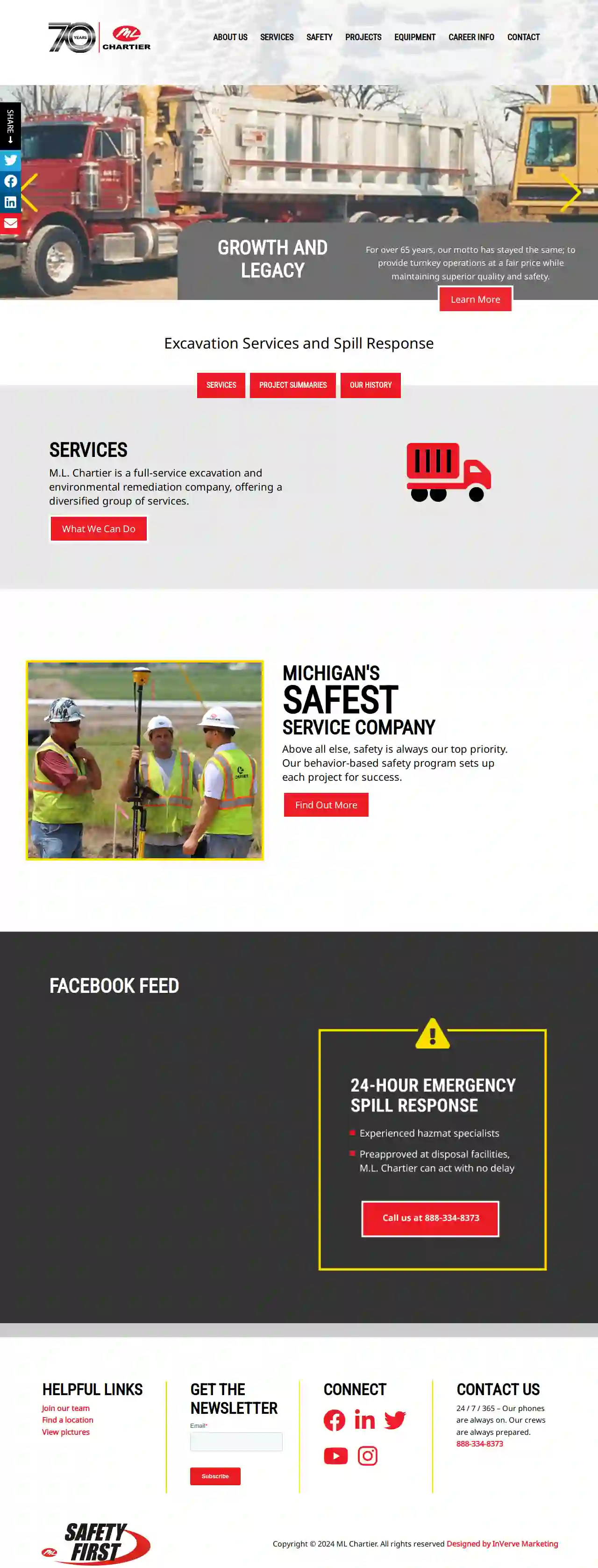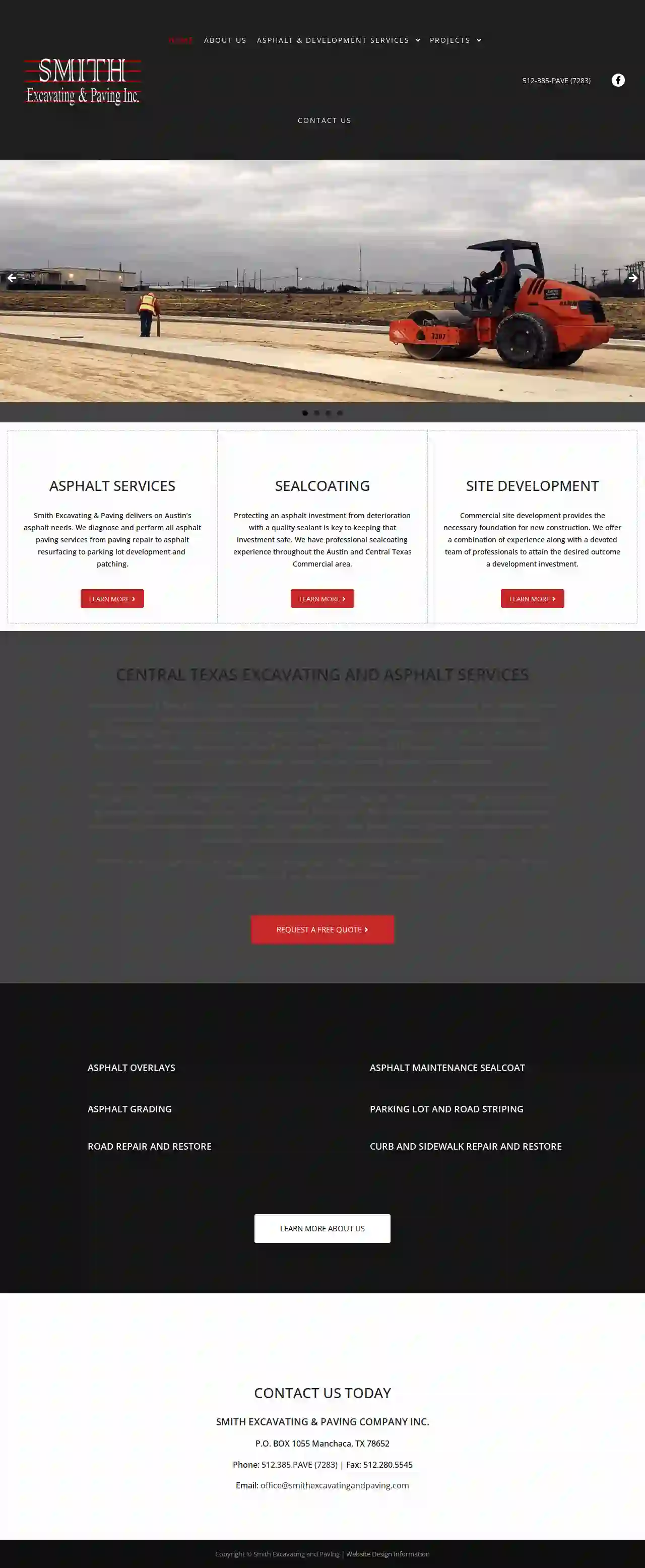Dirt Contractors Brownsville
Find Dirt Contractors in Brownsville
Get up to 3 Dirt Contractor quotes for your project today! Compare profiles, reviews, accreditations, portfolio, etc... and choose the best service.
- R
R & R Ditching
4.811 reviewsSpring, US- Services
- Why Us?
- Gallery
Get Quote 
Land Works Excavating, Inc.
52 reviews44 Meeting House Road, Pawling, 12564, USIf excavation is in your future, then Land Works should be, too Reputable and respected in the construction industry for over 25 years, we provide residential and commercial excavation in both New York and Connecticut. What sets us aside from most other contractors is our remarkable knowledge of the excavation business and the professional rapport that we strive to maintain with our customers. From the start, owner Steve Webster has always run his business with integrity. He is not interested in just “doing the job” he works until “the job is done right”. His belief in this attitude is what allows him repeat business and referrals because he can be trusted to complete the job right from the start. Now that you know a little more about us, please check out the rest of our website for a larger view into what work we can provide you with in the future.
- Services
- Why Us?
- Gallery
Get Quote
Rayco Excavation & Construction
52 reviewsCaddo Mills, USAbout Rayco Excavation & Construction Rayco Excavation & Construction is a professional & experienced land clearing & construction company that is located in Caddo Mills, TX. We provide our clients with a wide range of services including, but not limited to: excavation, land clearing, general construction, grading, site prep & more. Our company works with commercial, residential, & government clients, providing quality services and premier customer service on every project. To learn more about what Rayco Excavation & Construction has to offer, please select from one of the following options: (214) 708-1206 Request a Free Quote
- Services
- Why Us?
- Gallery
Get Quote
R. Integrity Design LLC
55 reviewsCleveland, Texas, USIntroducing R. Integrity Design LLC Are you looking for an experienced excavation contractor in Cleveland, TX? At R. Integrity Design LLC, our excavation services are rooted in a steadfast commitment to customer satisfaction. For over two decades, we have ensured that every project we undertake meets the highest standards of quality and safety. We understand the critical role that site preparation plays in any construction project, whether it's for a cozy home or a sprawling commercial complex. Our quick service doesn’t compromise on quality, and our reputation for great customer service is a testament to our client commitments. Our range of services is as diverse as our client base. From precise site clearing that paves the way for new beginnings to demolition services that carefully dismantle the old, we handle each task with unparalleled expertise. Our team excels in land demolition, clearing sites with efficiency and safety. We provide essential grading services like regrading and resloping to lay the ideal foundation for your construction. In construction demolition, we’re meticulous, ensuring precision in every phase. Our subgrade stabilization strengthens the base of your projects, and we’re adept at constructing retention walls, crucial for soil erosion and water flow control in civil constructions. Our work in specialized projects like railroad sighting, railroad yards, and railroad crossings showcases our versatility and ability to tackle complex tasks. We provide materials like gravel, crushed concrete, and limestone, integral to various construction phases. What sets R. Integrity Design LLC apart is our unwavering dedication to delivering exceptional service at great prices. We offer free estimates, ensuring transparency right from the start. For top-notch excavation services in Cleveland, TX, choose R. Integrity Design LLC. We're ready to bring your construction visions to life with our expertise. Reach out for a free estimate and discover why we're a go-to contractor in the industry. Together, let's create something outstanding.
- Services
- Why Us?
- Gallery
Get Quote
Franklin Excavation
11441 New Hwy 96 W Ste 2 #418, Franklin, 37064, USResidential Excavation At Franklin Excavation, we understand that your home is more than just a building—it's where life happens. Whether you're planning to build, landscape, or install a pool, our residential excavation services in Franklin, TN, are designed to meet your needs. We specialize in everything from site preparation and grading to trenching and land clearing. With our expert team and top-notch equipment, Franklin Excavation ensures every project is handled with precision and care. Let us take care of the heavy lifting so you can focus on bringing your vision to life. Our services include: Retaining walls, Footers and basements, New septic system installations, Driveway construction, House and barn demolition, Pool excavation, Pond building, Site preparation, Drainage solutions Commercial Excavation At Franklin Excavation, we understand that your business needs a strong foundation—literally. Whether you're breaking ground on a new development, expanding your facilities, or need professional site preparation, our commercial excavation services are here to support your project. Located in Franklin, TN, we specialize in everything from large-scale grading and trenching to demolition and land clearing. With a dedicated team and cutting-edge equipment, Franklin Excavation ensures your commercial projects are completed on time and within budget. Let us handle the groundwork so you can focus on building your business. Our services include: Erosion Control + Maintenance, Retention Pond Development & Maintenance, Grading / Earthmoving, Demolition & Land Clearing, Landscape Excavation, Site Preparation, Foundation Excavation “The guys at Franklin Excavation are great at their job. We had them out to clear our back yard, and they did a great job at a really reasonable price. Their turnaround time is usually pretty fast. I would definitely recommend getting a quote from these guys.”—Karl L,
- Services
- Why Us?
- Testimonials
- Gallery
Get Quote
Murat Group Tx
1Suite 100, 14000 Midway Rd, Addison, 75034, USMurat Group Murat Group is a leading provider of construction services in the Dallas-Fort Worth Metroplex. We specialize in commercial and residential construction, and we are committed to providing our clients with the highest quality workmanship and customer service. Learn More
- Services
- Why Us?
Get Quote
ML Chartier Inc
3.624 reviewsSpring, US- Services
- Why Us?
Get Quote
Horkus Commercial Construction Company
125329 Budde Rd, The Woodlands, 77386, USBuilding dreams, one brick at a time. Horkus Construction is a reputable construction company based in Houston, Texas. With a strong portfolio and a dedicated team, we strive to deliver exceptional results for our clients. Our Company History Horkus Construction has been taking a leading role in providing construction services with an uncompromised commitment to Quality, Health, Safety, and Environment. We do this through the combination of an open relationship with our employees based on mutual trust, transparency, accountability, and discipline. OUR MISSION At Horkus Construction, our mission is to provide top quality craftsmanship at an affordable price. We believe that it is of high importance to build relationships rooted in trust. We work together to push through barriers and excel in making your next project your dream come true. OUR VISION To develop relationships and gain the trust of our customers. We strive to be the first company that comes to mind when you think of dependability and excellence. Horkus Construction aspires to be the top construction company in Houston and the surrounding areas. OUR VALUES Who we are and what we stand for: Honesty: We believe that honesty is the best policy. You can rely on Horkus Construction to provide exceptional workmanship tailored to your unique needs. Originality: Horkus Construction strives to think outside the box to help you design your next project. Results-Oriented: The Horkus Construction team is results-oriented. We work day in and day out to build your dream. Knowledge: We pride ourselves in constantly growing our knowledge in the ever-changing industry. Unity: The Horkus team is tightly knit and works hand in hand to excel at providing impeccable service. Simplicity: We work by your side to make the experience with the Horkus Construction team enjoyable and hassle free.
- Services
- Why Us?
- Our Team
- Gallery
Get Quote
Smith Excavating & Paving Co
1Austin, US- Services
- Why Us?
Get Quote
Level Up KC Foundation Repair & Excavation
4.945 reviews5565 Cumberland Rd, Odessa, 64076, USTake your home to the next level. Welcome to LEVEL UP FOUNDATION REPAIR, EXCAVATION AND CONTRACTING, LLC, a family-owned business. We provide top-quality foundation repair, excavation, and home improvement services for Kansas City and the surrounding areas. Offering over 15 years of experience, we are fully prepared to offer exceptional and professional services while at an acceptable rate. We offer services from foundation leveling to basement waterproofing along with trenching, gravel hauling, decks, and fencing. Call us today to see how much you can save on your next project or contracting needs. -- JOHNNA AND BRANDON DEAN Odessa, Missouri CALL TODAY
- Services
- Why Us?
- Gallery
Get Quote
Over 3,943+ Excavation Pros on our platform
Our excavation contractors operate in Brownsville & beyond!
ExcavationHQ has curated and vetted Top Excavation Contractors in and around Brownsville. Find a top & reliable contractor today.
Frequently Asked Questions About Dirt Contractors
- Large-Scale Excavation: Assessing soil conditions, designing slopes, and ensuring stability for large excavation projects.
- Foundation Design: Determining the appropriate foundation type and depth based on soil bearing capacity and other factors.
- Retaining Walls: Designing retaining walls to stabilize slopes, prevent erosion, or create level areas on sloped sites.
- Slope Stability Analysis: Evaluating the stability of slopes and recommending measures to prevent landslides or erosion.
- Contaminated Soil Remediation: Developing and implementing plans to clean up contaminated soil.
- Erosion Control: Berms can intercept and slow down runoff, preventing soil erosion and sedimentation.
- Noise Reduction: Berms can act as noise barriers, reducing noise pollution from traffic, construction, or industrial activities.
- Visual Screening: Berms can block unsightly views, create privacy, or define property boundaries.
- Security: Berms can serve as security barriers, deterring unauthorized access or vehicle intrusion.
- Landscaping: Berms can enhance landscaping by creating elevation changes, providing planting areas, or defining garden beds.
- Clearly Define Your Project Scope: Provide the contractor with detailed information about your project, including the size of the area, the type and volume of dirt needed, the desired grading or leveling, and any specific requirements.
- Obtain Multiple Quotes: Request quotes from multiple reputable dirt contractors to compare prices, services, and experience. Ensure the quotes are comprehensive and include all project details.
- Verify Licensing and Insurance: Confirm that the contractor has the necessary licenses, insurance coverage, and a good safety record. This protects you from potential liabilities.
- Communicate Openly and Regularly: Maintain open communication with the contractor throughout the project, addressing any questions, concerns, or changes promptly. Regular updates and site visits can help ensure everything is on track.
- Document Everything: Keep written records of all communication, contracts, quotes, and invoices for reference and accountability.
- Designated Disposal Facilities: Contact your local waste management authority or search online for designated dirt and debris disposal facilities in your area. They accept various types of soil and construction materials.
- Recycling Centers: Some recycling centers accept clean fill dirt, concrete, or brick for reuse in other construction projects.
- Donation: If the dirt is clean and suitable for gardening or landscaping, consider donating it to community gardens, schools, or neighbors with landscaping projects.
What is a soil engineer, and when might I need one?
What is a dirt berm, and what are its uses?
What are some tips for working with dirt contractors?
What is the best way to dispose of excess dirt?
What is a soil engineer, and when might I need one?
- Large-Scale Excavation: Assessing soil conditions, designing slopes, and ensuring stability for large excavation projects.
- Foundation Design: Determining the appropriate foundation type and depth based on soil bearing capacity and other factors.
- Retaining Walls: Designing retaining walls to stabilize slopes, prevent erosion, or create level areas on sloped sites.
- Slope Stability Analysis: Evaluating the stability of slopes and recommending measures to prevent landslides or erosion.
- Contaminated Soil Remediation: Developing and implementing plans to clean up contaminated soil.
What is a dirt berm, and what are its uses?
- Erosion Control: Berms can intercept and slow down runoff, preventing soil erosion and sedimentation.
- Noise Reduction: Berms can act as noise barriers, reducing noise pollution from traffic, construction, or industrial activities.
- Visual Screening: Berms can block unsightly views, create privacy, or define property boundaries.
- Security: Berms can serve as security barriers, deterring unauthorized access or vehicle intrusion.
- Landscaping: Berms can enhance landscaping by creating elevation changes, providing planting areas, or defining garden beds.
What are some tips for working with dirt contractors?
- Clearly Define Your Project Scope: Provide the contractor with detailed information about your project, including the size of the area, the type and volume of dirt needed, the desired grading or leveling, and any specific requirements.
- Obtain Multiple Quotes: Request quotes from multiple reputable dirt contractors to compare prices, services, and experience. Ensure the quotes are comprehensive and include all project details.
- Verify Licensing and Insurance: Confirm that the contractor has the necessary licenses, insurance coverage, and a good safety record. This protects you from potential liabilities.
- Communicate Openly and Regularly: Maintain open communication with the contractor throughout the project, addressing any questions, concerns, or changes promptly. Regular updates and site visits can help ensure everything is on track.
- Document Everything: Keep written records of all communication, contracts, quotes, and invoices for reference and accountability.
What is the best way to dispose of excess dirt?
- Designated Disposal Facilities: Contact your local waste management authority or search online for designated dirt and debris disposal facilities in your area. They accept various types of soil and construction materials.
- Recycling Centers: Some recycling centers accept clean fill dirt, concrete, or brick for reuse in other construction projects.
- Donation: If the dirt is clean and suitable for gardening or landscaping, consider donating it to community gardens, schools, or neighbors with landscaping projects.